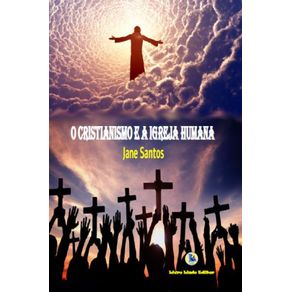-
DEPARTAMENTOS
- ANIMAIS DE ESTIMAÇÃO
- ARTES
- AUTO AJUDA
-
BEM ESTAR E LAZER
-
CATEGORIAS
-
-
CULINÁRIA E GASTRONOMIA
-
CATEGORIAS
-
-
ESPORTES
-
CATEGORIAS
-
- INFANTIL
-
RELIGIÃO
-
CATEGORIAS
-
- ADMINISTRAÇÃO E NEGÓCIOS
-
CIÊNCIAS BIOLÓGICAS E NATURAIS
-
CATEGORIAS
-
- DIREITO
- ECONOMIA
-
MEDICINA
-
CATEGORIAS
-
-
TODOS DEPARTAMENTOS
-
INTERESSE GERAL
-
LIVROS TÉCNICOS
-
- DISCIPLINAS
- ACESSÓRIOS
- FORMATURA
- PAPELARIA
Funeral Rites Reformation for Any African Ethnic Community Based on the Proposed New Funeral Practices for the Agikuyu
Cód:
491_9781498290906
Funeral Rites Reformation for Any African Ethnic Community Based on the Proposed New Funeral Practices for the Agikuyu
Autor:
Editora:
Código:
491_9781498290906
Vendido e entregue por Um Livro
This book has been written on the premise that the mode of coping with death of virtually all African ethnic communities has taken proportions and turns that are neither cultural, scriptural, nor necessary. Current rites are complicated, time-consuming, expensive, and are leaving most families and their neighbors impoverished. They have been extremely commercialized and a large number of Africans do not have resources to bury their dead the modern way. Were the Agikuyu (read: Africans) to curb numerous funeral demands which they deem necessary and customary, when in actual fact they are not, funerals for them would become cheaper, faster, and simpler; would be decent enough for the dead; would take care of those left behind; and would be environmentally friendly. How Africans in the Diaspora, away from their ancestral homeland, should cope with death is also addressed. Also addressed is the issue of cremation. It is shown that at the resurrection, God will accord us new spiritual bodies which will have no bearing with the material substance of our earthly (mortal) bodies.In African culture, proper burial is a matter of utmost importance. However, the expenses involved can be crippling for families. In a work that should be relevant across the continent, Mbugua proposes a better way that is thoroughly African and Christian. --Kevin G. Smith, Vice Principal, South African Theological SeminaryMbuguas book achieves its objectives and has merits on several levels, the most important being that it is written by one who has brought to his work not only a critical attitude to the Agikuyu Christian funeral rites, but also an observers impression. --Christopher Byaruhanga, Professor of Systematic and Historical Theology, Uganda Christian UniversityThe author made his basic point very clear: the present death and funeral practices of the Agikuyu (and we can say it also of our own cultures, I think) have little basis in either traditional burial prac
Veja mais

































